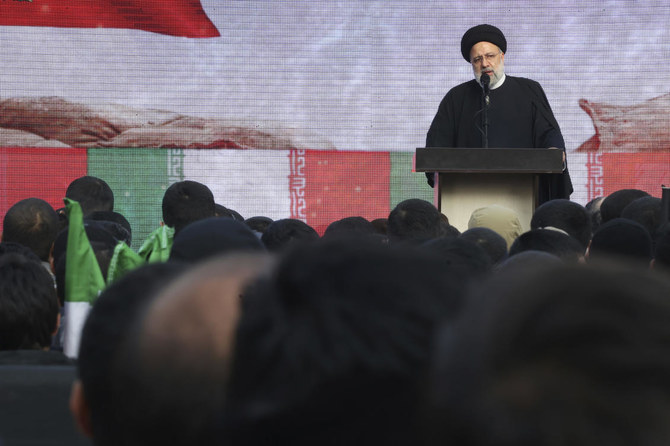TEHRAN: President Ebrahim Raisi said Tuesday Iran would show “no mercy” toward “hostile” opponents of the Islamic republic, gripped by more than 100 days of protests sparked by Mahsa Amini’s death.
The “riots,” as Tehran generally refers to them, were triggered by the September 16 death in custody of Iranian-Kurdish Amini, 22, after her arrest for an alleged breach of the strict dress code for women.
Addressing a crowd in Tehran, Raisi accused “hypocrites, monarchists and all anti-revolutionary currents.”
“The embrace of the nation is open to all those who were lured,” said the ultraconservative president at a funeral procession for unidentified soldiers who perished during its eight-year war in the 1980s with neighboring Iraq.
“The embrace of the nation is open to everyone, but we will show no mercy to those who are hostile.”
Iranian officials say hundreds of people have been killed, including members of the security forces, and thousands have been arrested nationwide.
Foreign-based rights groups have put the death toll among protesters at more than 450.
Earlier in December, Iran executed two people in connection to the protests. The judiciary has said nine others have been sentenced to death, two of whom have been allowed retrials.
Campaigners say about a dozen other defendants have been charged with offenses that could see them receive the death penalty.
Iranian officials have accused hostile foreign powers, including the United States and some European countries, of stoking the unrest.
They aim “to derail the Islamic society from its high goals” by “spreading rumors and fracturing society,” said Raisi.
But foreign countries are “wrong” to think that would achieve their goals, Raisi argued, calling their moves miscalculated.




















